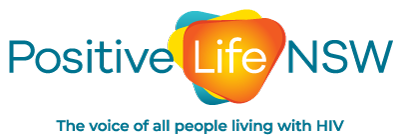
Media Release
29 March 2021
Positive Life NSW congratulates NSW Health on the release of the 2021-2025 NSW HIV Strategy. As a demonstrated world leader in the response to the HIV/AIDS epidemic from its earliest days, the new NSW Health Strategy builds on the successes of the previous two Strategies.
NSW Health has accomplished a dramatic reduction in HIV transmission. This has been achieved through bio-medical HIV prevention options such as pre-exposure prophylaxis (PrEP) and the use of HIV treatment as prevention (TasP), expanded and accessible testing options, supported by extraordinary levels of early and immediate antiretroviral treatment (ART) for people living with HIV in NSW.
“As people living with HIV, we echo the NSW Chief Health Officer Dr Kerry Chant in recognising the exceptional partnership between people living with HIV, clinicians, general practice, researchers and communities at risk in NSW to maintain the momentum of striving toward the ambitious goal of virtual elimination of HIV transmission for all in NSW,” said Ms Jane Costello, Positive Life CEO.
“For the first time we see a fourth pillar of reducing stigma and discrimination positioned alongside the vital pillars of prevention, testing and treatment,” said Mr Neil Fraser, Positive Life Deputy CEO.
“As people living with HIV, we are encouraged by this inclusion and recognition of the risk and impact that stigma and discrimination poses, creating barriers to accessing HIV testing, treatment and HIV prevention,” he said.
“This fourth pillar is reinforced with clear targets and initiatives to reduce HIV stigma in clinical settings, raise HIV awareness for both the general community and the healthcare workforce, while strengthening the role of complementary peer support,” he said.
“While we see substantial improvements in reducing HIV transmission, and addressing HIV treatment and care, not all populations at risk of HIV have benefited from our noteworthy success,” said Ms Costello.
“Some of these include people from culturally and linguistically diverse (CALD) backgrounds, Aboriginal people, and heterosexual people who may or may not neatly fit the epidemiological definitions of sexuality or sexual practices,” she said.
“Positive Life remains vigilant around reaching out to groups of people who are at risk of HIV, but for whom strategies based on identity and sexuality do not readily translate the message of HIV risk, transmission and prevention,” she said.
HIV testing is now easy and quick with a variety of free services, including confidential testing in local GP settings, free anonymous testing at sexual health services, or private Dried Blood Spot (DBS) self-testing service.
“While we acknowledge early testing and diagnosis linked to treatment prevents onwards HIV transmission, and that today people living with HIV can live long and healthy lives alongside our peers without HIV, HIV prevention is still essential.
The use of condoms are considered the most effective way to prevent HIV and STIs, alongside the bio-medical HIV prevention options such as pre-exposure prophylaxis (PrEP) and the use of HIV treatment as prevention (TasP) in our shared responsibility to prevent HIV transmission.”
Throughout the first half of 2021, Positive Life NSW will be facilitating a series of community discussion and consultation sessions titled ‘Beyond 2021: Ending HIV, Next steps’ to discuss and examine what the new Strategy means for all people living with HIV in NSW.
###
MEDIA CONTACT:
Jane Costello, CEO – 1800 245 677 or email communications@positivelife.org.au
Positive Life NSW is the voice of all people living with HIV in NSW since 1988. We are the largest peer-led and run representative body of all people living with HIV in Australia based in NSW. We make a significant contribution to and positive impact across the spectrum of health and social issues on behalf of all people living with HIV in collaboration with HIV specialist and mainstream services to improve the health and quality of life of all people living with HIV in NSW. We do this through evidence based health promotion, research, policy advice and peer support.






